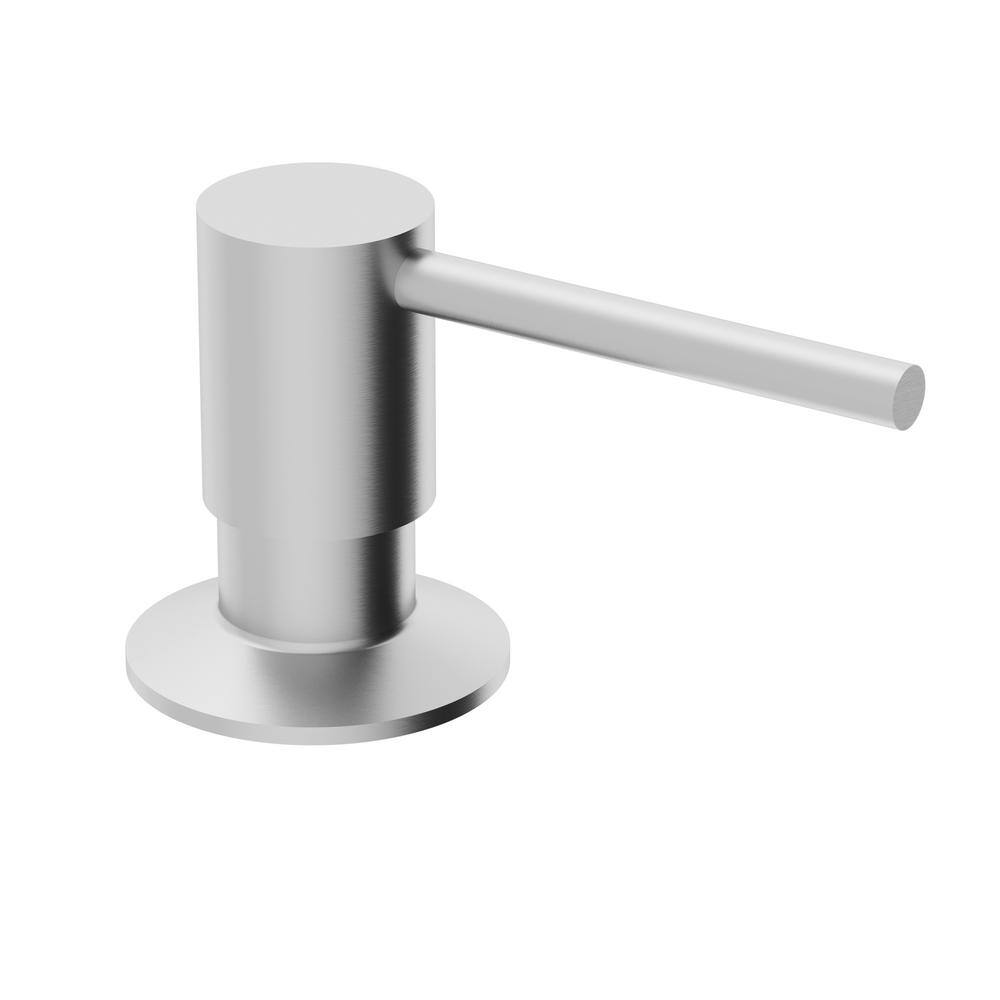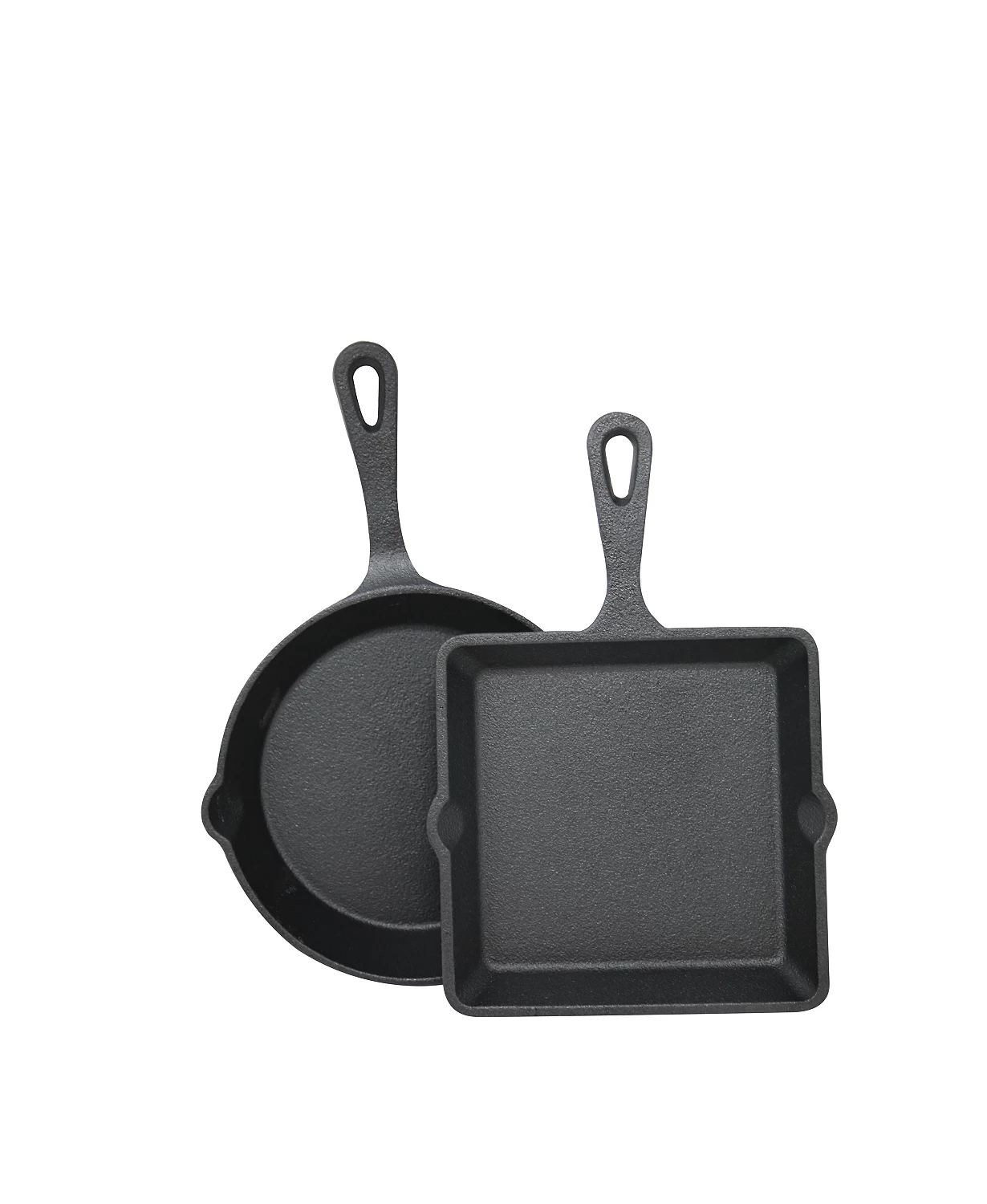VIGO Bolton Kitchen Soap Dispenser in Stainless Steel
Spout reach 3.5 in.; fits 1.25 – 1.5 in. opening. 10 ounce reservoir is easy to refill from above the counter. Finish gauranteed to match any other VIGO product in same finish.
Ergonomically designed, The Bolton by VIGO is a user-friendly soap dispenser that coordinates with any kitchen faucet. Whether your faucet style is modern or traditional, The Bolton ensures a coordinated look and makes washing more convenient with your liquid soap nearby. A premium 7-layered finish delivers a lifetime of brilliance and resists spots. For added convenience, you can refill the large reservoir from above the counter. The airtight suction and seal feature makes it easy to fill the dispenser with soap, lotion or detergent. Assembling this kitchen accessory over your kitchen counter next to your kitchen faucet is quick with a few simple steps. Experience the difference with more counter space and a cleaner look for your kitchen with this sleek soap dispenser.
- INNER GUARD TM: smooth interior prevents soap buildup and clogging
- SUCTION LOCK TECHNOLOGY TM: guarantees an airtight seal and secure pump action
- FINISH PLATED TM: ensures the hardware finish is consistent throughout and guaranteed to match all other VIGO products
- EASY REFILL: Refill from above the counter without having to go underneath sink
- 360° SWIVEL SPOUT: Fully accessible from all angles, this spout swivels 360 degrees
- IDEAL REACH: Spout reach is 3 1/2 inches
- REFILLABLE RESERVOIR: 10-ounce reservoir easily refills with your choice of soap, lotion, detergent, or hand sanitizer
- SIMPLE TO USE: Pump mechanism makes for easy, smooth use
- STANDARD FIT: Fits 1.25 – 1.5 inch opening
- EASY TO CLEAN: High-quality brass constructed hardware easily wipes clean for a lasting sheen
- PERFECT FAUCET COMPLEMENT: Pairs perfectly with any VIGO Kitchen Faucet
- VERSATILE STYLE: This kitchen soap dispenser fits in with a variety of kitchen design aesthetics
- PREMIUM FINISH: VIGO’s 7-layer coating ensures long-lasting brilliance that resists rust, corrosion and tarnish
- QUALITY HARDWARE: solid brass constructed hardware ensures optimal performance and long-lasting durability
- ALL PARTS INCLUDED: All parts and mounting hardware is included to support seamless installation
- FRUSTRATION FREE: user-friendly installation guide supports seamless, DIY installation
- LIMITED LIFETIME WARRANTY: All VIGO kitchen accessories feature a quality-assured Limited Lifetime Warranty
Additional information
| Dimensions | H 12.25 in, W 1.625 in, D 4.125 in |
|---|---|
| Manufacturer Warranty | The product has a limited lifetime warranty. |






by Forsy
Stylish, sturdy and easy to install. Highly recommend.
by Jolly
Works great and looks terrific. Feels like high quality.
by Snech
This soap dispenser is easy to install and works great. It replaced a Blanco dispenser that was leaking when used.
by Lisa
Bought the new Vigo faucet and decided to buy the soap dispenser too. Got them installed today. Look and work great. Love them!
by Jessica
Seems like good quality so far and nice modern design!
by Laura
Haven’t installed yet but love the look of the product.
by Tasty
I bought this about a month ago, Being a master plumber I was a little skeptical seeing it wasn’t a big plumbing name but bought it anyways. I am VERY impressed with it so far. Feels very well built and heavy duty.